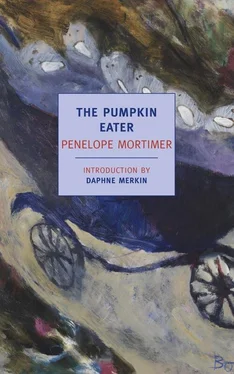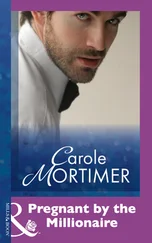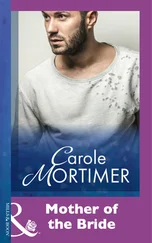So he did, as far as the bottom of the drive. He looked puzzled.
For the rest of the day I lay on my bed, or more accurately rolled and tossed and curled up like a spring on my bed, in a state of horror. My mother cajoled, shouted, even slapped me at one point, but I was speechless. Whenever she went out of the room I called desperately on the clergyman’s son to save me, but when she came back again I simply howled and hiccuped, feeling as though there were a great gale in me which I could not contain, a storm so violent that I need not even try to control it. I must be saved, I thought, I must be saved. From what? I didn’t know, but later I began to know. The nervous boy, whom I loved, was good. Mr. Simpkin was evil. I wanted to be delivered from evil by love, and never to touch it again for the rest of my life. Not for me the sofa at the Masonic Ball, the dirty joke, the quick bash; not for me spite, deceit, disgust. Save me, I implored the clergyman’s son, please save me. I didn’t know, of course, that this conception of salvation was completely idiotic, and that no man, woman or child can be another’s saviour. I did not even know this twenty-six years later, when I talked to Bob Conway in my own delightful sitting room and recognized once more the brutality that for half a lifetime I had called Mr. Simpkin.
Around supper time my mother called the doctor in. He said it was my age, and gave me a couple of pink pills. Before I went to sleep I told her all about it. She was exceedingly shocked and said we must keep it from my father. She didn’t know I even knew about such things, she protested; she didn’t know I had a side like that to my character at all. Whatever came over me, she asked, whatever possessed me? I sobbed into my slimy pillow that I didn’t know. I never saw Mr. Simpkin again. Possibly he left the neighbourhood. Eighteen months later, in the clergyman’s church, I was married to the reporter I had met at the Masonic Ball. The clergyman’s son passed his Higher Certificate and went up to Oxford, where he became a homosexual. I had a great affection for him, for many years.
11
“What is Jake’s … background ?” the doctor asked.
“Background?”
“Is his background the same as yours or is there a … conflict there?”
“Why do you always ask me about Jake? I come here and all you ask me is about Jake. I’ve only known the man for thirteen years, he’s not my father, my brother, he’s not even my Uncle Ted. Perhaps it’s Jake you should be seeing. Not me.”
I looked at him quickly, to catch him out. He was staring rather drearily at some point in the air between us: his eyes saw so far, no further. I thought he held his sight on a leash, pulling it in or extending it at will. I wanted him to see me, but didn’t know how to attract his attention. “What has Jake to do with me?” I asked, realizing too late that the question sounded biblical and absurd.
His sight retired, tortoise-like, into his head. He could now see no further than the inkstand and gold-embossed leather blotter in front of him.
“I don’t want to talk about Jake,” I explained. “I want to talk about myself.”
“Carry on.” He made a vague, conducting gesture. “Please. Carry on.”
I sat for a long time, unable to think of anything. At last I said, “I’m much better, you know. By the time Jakes comes back I shall be … quite better.”
“You find the tablets a help?”
“Yes. A great help.”
“Good, good. Don’t get in the habit of taking them.”
“But you told me to take two a day.”
“Yes, of course. But don’t get in the habit.”
I tried again. “Don’t you think I seem better?”
“Of course. Every day and in every way …” Then he became solemn. “However, you must realize that at the moment we are simply putting stepping stones, shall I say, over a raging torrent. Our task is to divert that torrent. To divert it, as it were, to some other area where it is badly needed. To do that, we must find its source. That can’t be done in three or four weeks, you know. We must trace the course of the torrent.” He raised his hands, palms together, and snaked them through imaginary valleys. “We must trace the course carefully until one day, hidden under some insignificant rock, we shall come upon a small spring and then, then , we can talk about getting better.”
I thought about this for a few moments. Then I asked, “What torrent?”
“We might call it your will to self-destruction.”
“And we have to divert that?”
“We have to turn it into creative channels, yes.”
“I don’t honestly know what you’re talking about. I mean …” I frowned, trying to think of a kinder way of putting it, “I mean, I don’t have any will to self-destruction.”
“Not consciously, of course. But the pain, the danger you experience in childbirth, for instance, isn’t that…?”
“Oh, really!” I said. “It’s absurd!”
He nodded, smiling, and wrote in his book.
“You can’t say it’s destructive to have children. Not if you want them. Not if you can keep them.”
“But there was a time when you couldn’t keep them?”
“We went into that last time,” I said. “I could always keep them.”
“But at the cost of at least two marriages.”
“Let’s talk about the torrent,” I said. “It really makes more sense.”
He bowed his head, and for a moment I felt sorry for him. Poor man, the butt of everyone’s anger, I should be nicer to him. “Jake’s parents,” I said, “were quite different from mine.”
“They’re dead?”
“His mother is. She died when he was quite young, he doesn’t remember her, he doesn’t even know what she was like. In the photographs she looks like one of those woman novelists in the ’20’s, with shirt-waists and those great jackets with slits up the back, like men’s. He was looked after by housekeepers, women who didn’t really care. There wasn’t a loving one among them. I suppose that’s why he loved his father so much. I mean, he still loves him. His father treats him like a child, you know, he nags him and baits him, he keeps all the bad notices of Jake’s pictures, never the good ones. But it doesn’t make any difference. They’re the same person. If you want to know what Jake will be like in another thirty years … there he is. He’s more or less retired now, but he used to write crime stories — he wrote hundreds, they were very successful, he made a lot of money. He called himself Max English. Perhaps you read them?”
“No. No. I’m not much of a one for crime.”
“He’s selfish, and mean, but… I’m very fond of him, too. He was away a lot when Jake was a child. Jake was terribly lonely. Lonely and sad at home, and at school. He was at school from the time he was six, and he hated it.”
“Did he go into the army?”
“Well, he did for about eight weeks. Before the war, when he left Oxford, he wanted to be an actor, then he went into advertising for a bit, then he was called up. But there was something wrong with his bladder, so they circumcised him, and when that didn’t do any good they let him out.”
“You mean he was discharged?”
“Yes. But the bladder thing got better anyway. He says that was the unhappiest time of his life, but afterwards, when he’d left the army, he enjoyed the war. He worked in the Ministry of Information — I don’t quite know what he did — but goodness, those were the days.”
“I don’t follow you…”
“For Jake, those were the days. The shelters, the blackout, everybody not being downhearted. The war did everything for him. It did his feeling for him. I mean, nobody expected anything of him , do you see? The whole world was serious and tragic and full of gloom, so people like Jake were let off. It wasn’t necessary for Jake to think or feel during the war, or take anything seriously, or care. He didn’t have to make up his mind about anything and he was approved of. When he talks about the war now it’s just like somebody talking about their childhood. You know? It was always summer and always strawberries for tea, there was always someone who loved you for what you were, not for what you ought to be.”
Читать дальше












